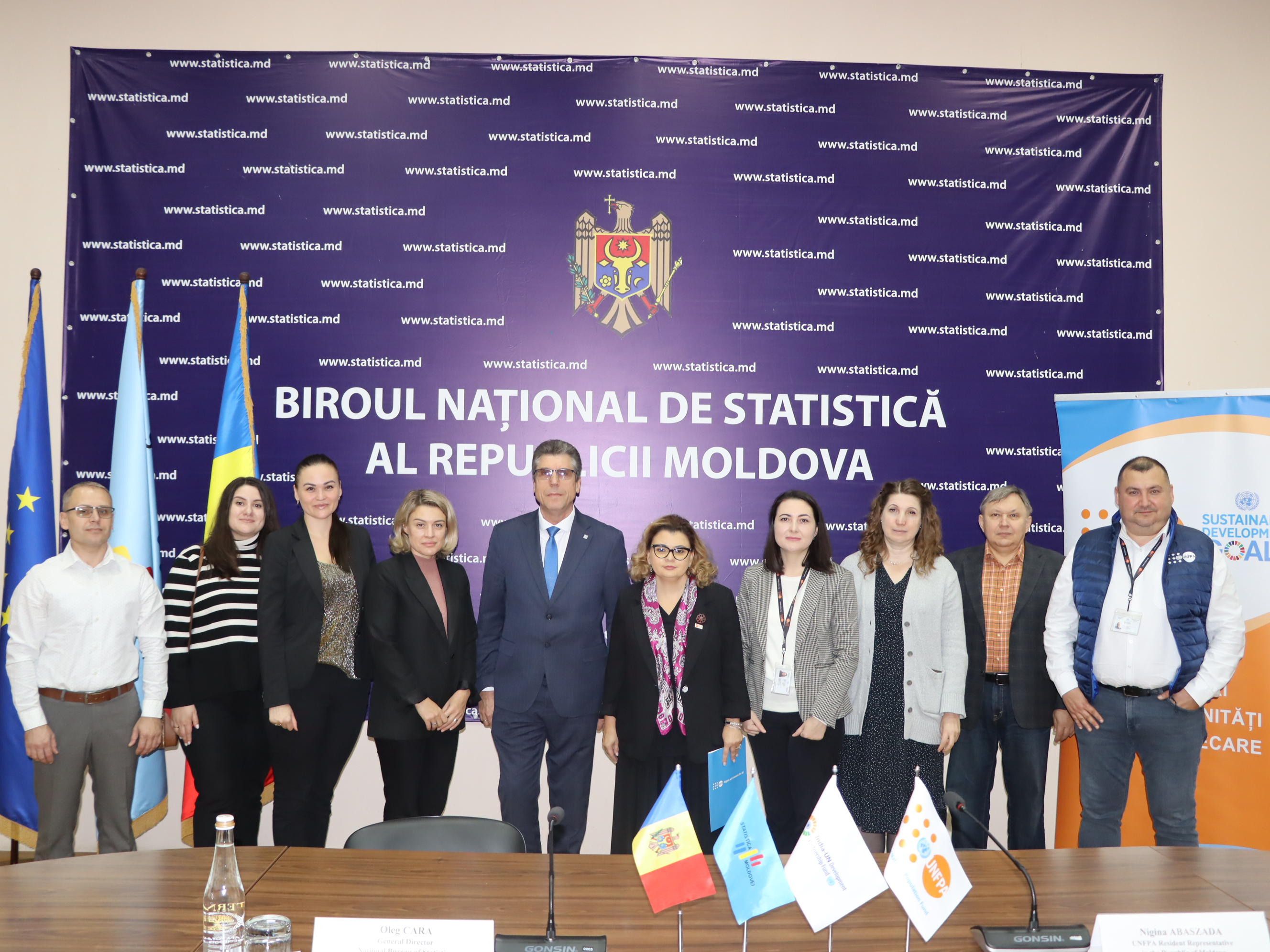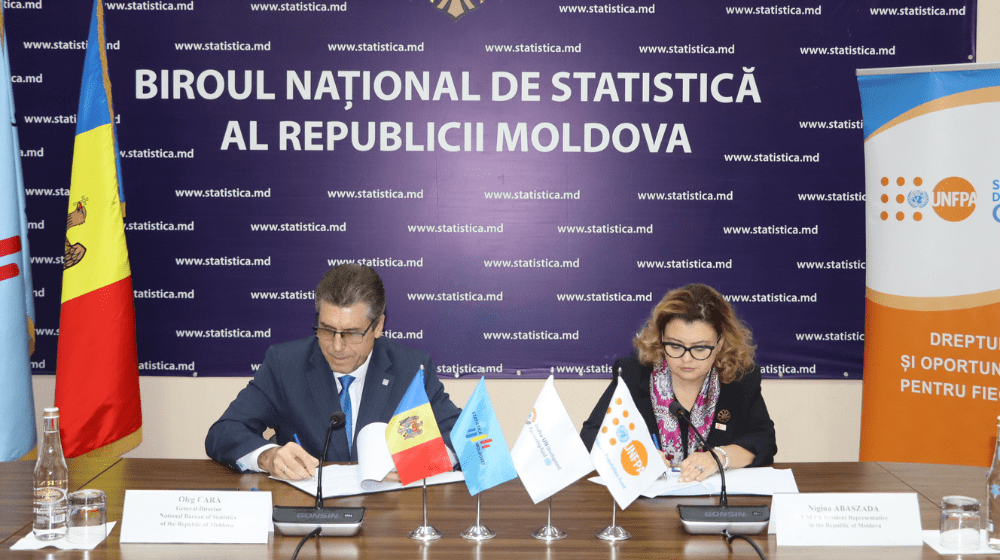On 1 November, the National Bureau of Statistics (NBS) and the United Nations Population Fund (UNFPA Moldova) signed a Memorandum of Understanding for the period 2023-2027, which envisages expanding and strengthening the partnership developed over the years, especially in the use of innovative technologies for the collection and production of quality official statistics.
The document envisages the expansion of bilateral cooperation in several areas, such as:
- using new sources of administrative data and other non-traditional data to produce the national statistics
- digitalization of the data collection process, aimed at improving the quality and accessibility of population statistics
- upgrading the statistical system, etc.

These actions will be implemented as part of a project implemented by UNFPA Moldova and funded by the India-UN Development Partnership Fund. The aim of the project is to strengthen the capacities of the National Bureau of Statistics to use and expand administrative data sources in the field of social and demographic statistics, which will contribute to the gradual replacement of data collected through statistical surveys with data from existing administrative data sources.
At the same time, the signing of the Memorandum also makes it possible to streamline the preparation and implementation of the Population and Housing Census planned for 2024, which is an essential activity for efficient state planning, development of social policies and socio-economic development of the Republic of Moldova. Preparations for the census will be carried out under the project ‘Support to the National Bureau of Statistics in conducting the 2024 Population and Housing Census’, funded by the European Union and co-funded by UNFPA.
According to the Memorandum, UNFPA will also provide support to the NBS in conducting statistical research and collecting data on domestic violence, as well as in strengthening institutional capacity for statistical dissemination, which will contribute to improving the skills of data users and increasing statistical literacy in society.


